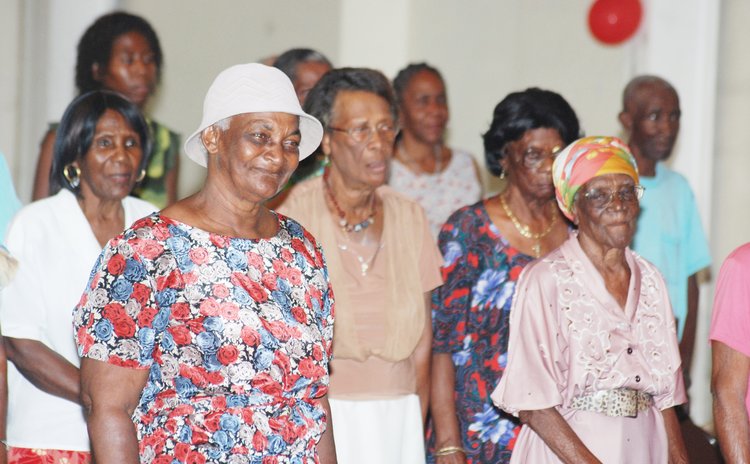Dominica's Elderly: Taking a Licking Yet Keeping on Ticking

Here we go again- invoking the word "resilience" in the Dominican context without clearly defining what we mean.
In 2018, the Dominica Council On Ageing (DCOA) selected "resilience" as a major feature of its theme when it observed the annual Month of the Elderly in September. The theme was: "Recognizing Senior Resilience".
Four years later, in 2022, the DCOA theme for the Month of the Elderly is: "Building Resilience".
But seriously-"resilience" has always been a difficult term to define and its abuse by the Skerrit administration after Hurricane Maria has contributed immeasurably to the uninhibited manipulation of the term.
Measuring resilience is also problematic and thus we anticipate that politicians will claim, sooner rather than later, that Dominica is much more resilient than the country has been since your mom and dad went to primary school. Since you can't measure resilience, there are no facts to counter the politician's argument.
But as we examine the theme for the Month of the Elderly ("Building Resilience") we ask ourselves, how do we define and then measure senior resilience? Are we saying that the ability of senior citizens to withstand decades-long battering and bruising by society, and even family members, and still live to see many more sunrises is a measure of the resilience of our elderly? And is that a good thing, something that should make us proud?
Or should we instead quantity resilience of older persons by measuring how much greater access our elderly has to better housing, better health care, better nutrition, and better financial security than two decades ago?
In other words: is taking a licking from society and friends and relatives and keeping on ticking and smiling a sign of resilience?
In the literature on the subject, there have been various attempts at defining elderly resilience. For instance, the American Psychological Association (APA) defines resilience as "the process of adapting well in the face of adversity, trauma, tragedy, threats, or significant sources of stress," or "bouncing back" from difficult experiences.
But most of us think of resilience as the ability to bend, like bamboo, but not break, bounce back, and perhaps even grow in the face of adverse life experiences. What we should not forget, in our analysis of the "resilience" of the elderly, is that people's reaction to adverse events or "trauma" depends on where they live, who do are, what support systems they have had, and, most importantly, what is their genetic makeup.
Resilience, we must not forget, is a continuum- no one is absolutely resilient, and no one is completely non-resilient.
We suggest to Dominicans that before we begin complimenting the elderly for being able to withstand health, financial and natural disasters, we should first recognise the appalling living conditions of older people in Dominica.
According to Help Age International, the world over, older persons face a number of issues including chronic illness, limited access to health care and medication, poor housing, lack of economic security and livelihoods, social isolation, neglect and abuse.
Alarmingly, the situation is getting worse as numbers of seniors increase and Dominica grapples with a comatose economy following the death and burial of the banana industry, the stagnation and amputation of tourism and the demise and destruction of manufacturing.
Although statistics on the number of old persons who are below the poverty line in Dominica are not available, in developing countries generally, older persons are among the poorest of the poor and the most vulnerable in society because governments have not made adequate provision to take care of their old persons. Help Age, for instance, estimates that worldwide more than 100 million older persons now live on less than US$1 a day. Hence, during the 2022 Month of the Elderly, we need to discuss not only how to build resilience among our seniors but also how to remove or reduce the conditions that create the need for greater resilience: such as rampant poverty, runaway unemployment, debilitating abuse, unaffordable medical care and the intolerable cost of living.
We need to because too many of Dominica's elders are silently taking a licking yet keep on ticking. That's not something we should celebrate.




